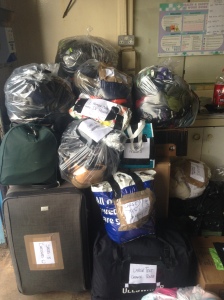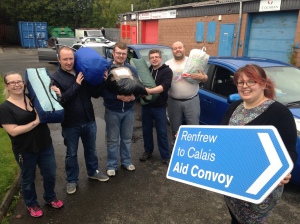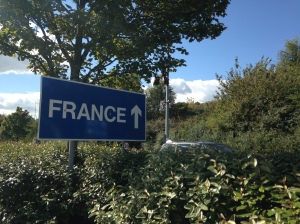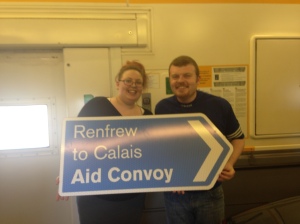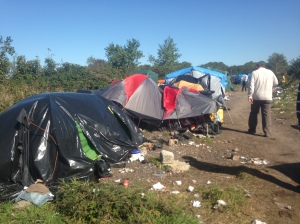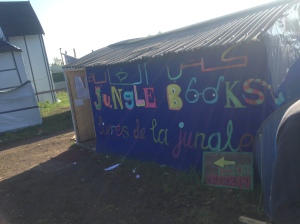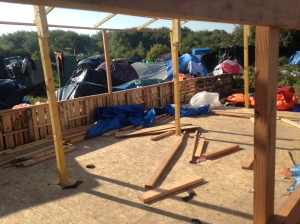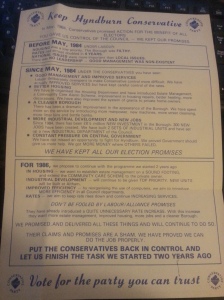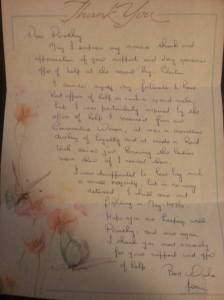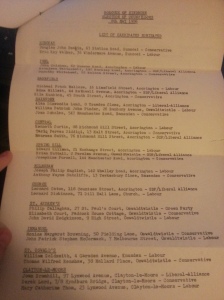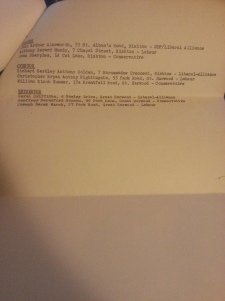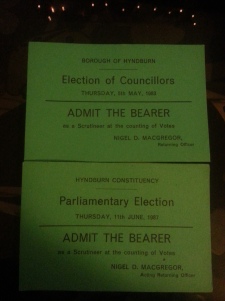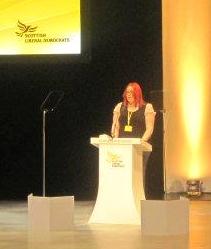Thursday 24th September: The Prep
10 volunteers joined us on Thursday to get the final sorting of donations done, and long after the last people had left, Stephen and I finished the final job of splitting the food we’d received into individual parcels to distribute directly on arrival, as requested by one of one of the organisations working in Calais. All the advice from the groups there had been to arrive prepared – only bring the most urgently needed items, and have them all separated by type and size so that they could be easily distributed in the camp or stored in the warehouse when distribution wasn’t immediately possible. We followed that advice to the letter; our arrival had been booked well in advance, and we’d checked in frequently with the people we were meeting and others on the ground to confirm that we were bringing only the most needed goods.
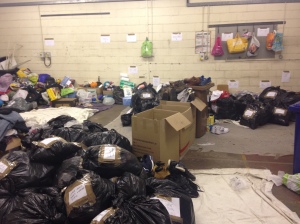
It was difficult to keep up – at one point we were told to collect hardwearing men’s jeans and trousers but the day before we set off, we were asked to leave those and some other items behind as enough had been collected. It’s not nice to leave donations behind, but we were able to fill the space in the vehicles with other things that had climbed up the priority list (like tents, food, and boots) and we knew we’d get the jeans out next time they were needed as they were already sorted and bagged, ready to go down with another group when necessary. We Locked up the unit just as the milk vans were arriving to load up for the day, marking the end of 3 weeks of intense work. We were as ready as we could be the drive down.
Friday 25th September: The Send Off
We’d been really lucky with all the help we’d had locally; the local paper had drummed up support and contacted some key people asking them to help us; the council provided storage space, set up collection points throughout the area, arranged vans to help gather donations locally, and provided us with volunteers; the Bishop set up collection points and the local churches encouraged people to donate goods and money to us; educational institutes collected goods and provided support; and local people gave donations, money and lots of their time to help sort through things. None of what we did would have happened without help from the people of Renfrewshire, so we were happy to welcome the press to see us off on Friday morning to let people know that their hard work was paying off, to thank everyone who had helped, and to get a last call out for fundraising. We’d raised over £2,000 which more than covered our costs, so everything left over could be spent on the most needed goods when we arrived.
We posed for photos while loading up the cars and thanked everyone who’d helped pull everything together – it was really exciting and seeing the goods get into the vehicles was really satisfying. We fit in more than we’d hoped to and all 4 cars set off. One would meet us in Calais the following day, and 2 would follow us to Manchester and empty their cargo into a large trailer that would come with us the rest of the way.
In Manchester, we loaded the two cars into the trailer (carefully weighing everything as we went!) and found there was enough space in the end to fit the contents of all 3 cars in there instead! This meant we’d only need to take one car with us to pull the trailer, instead of two. This would save us over £200 on fuel & crossing costs so we were really happy about that.
We all had a good meal, waived goodbye to the cars heading back up to Glasgow, and went to bed. Next stop, Calais!
Saturday 26th September part 1: The Drive
We were up bright and early to set off at 7.30am in old clothes reserved for decorating and garden work, ready to get some work done as soon as we arrived. We reconfirmed our expected arrival time with our contact, and got the address for where to meet them.
We had thought long and hard about how and when to book the crossings; it’s cheaper to book ahead online, but if you turn up late and miss the pre-booked ferry or Eurotunnel, it can get very expensive indeed! As the drive was going to take over 6 hours (with the weight of the trailer restricting our speed), we knew there was a lot of room to arrive early or late, and we didn’t want to miss a pre-booked crossing and have to pay more out of the donations that were given so kindly, or arrive too early and waste time in Dover that could be spent helping in Calais. So, we spent most of the drive (and most of our monthly data allowance!) looking for the best deals as we got a better idea of the time we were likely to get there. The Eurotunnel told us they were booked up, but we called again as we got closer to find there had been enough cancellations, and few enough tickets sold at the port, that we could cross with them after all at a much cheaper rate that on the ferry.
Both cars took the Chunnel and we met in Calais so that we could arrive at the warehouse to meet the organisation together. We’d heard horror stories of people turning up to The Jungle (the name given to the refugee camps) to distribute, only to be met by the strongest people there who can empty the vans in seconds and sometimes hoard the goods. The process, therefore, is to meet at the warehouse where goods are unpacked & grouped together ready to meet bigger teams of people to get the goods out to The Jungle more fairly, safely and effectively. Items that aren’t needed are kept in the warehouse ready for when they are needed, otherwise donations that may be needed again in a few days can be found left in the mud in the camps.
Saturday 26th September part 2: The Warehouse
We pulled up at around 5pm as planned, and were asked if we’d consider coming tomorrow instead since we were staying overnight and the warehouse volunteers were hoping to finish for the day by around 6.30pm – we explained that that wasn’t really going to work given that we had a lot less time the following day, but said we’d be very happy to muck in with sorting the items into the messy warehouse, and that a lot of what we had was stuff that needed to go straight to the camp anyway so we were happy to take it there (boxes of shoes already sorted by size, food parcels, etc.).
The person who met us asked us not to go to The Jungle, but instead to empty everything but food at the warehouse after all. The warehouse manager showed us where to put everything and we set about unloading. He told us not to take the food parcels to camp because “they have too much food now, there’s unopened food scattered all over the place because they’ve got too much of it, just leave it here, you shouldn’t really have brought food.” It was disappointing to think the parcels might go to waste, but we were elated to hear that nobody in The Jungle was hungry anymore! We had planned to spend a lot of the money we’d brought with us on food, so asked what kind of thing might be better – he said just to give cash to them. We said we’d rather buy things, but he said no more supplies were needed because the warehouse was well stocked, that there was no point buying food, and that the focus was construction so if we gave the money to him he would give it to the builders. We wanted to know what we were buying so we offered instead to buy the building materials but he again stressed that the best thing to do was just to give the cash to them. We politely declined, hoping to find a different solution.
Another group of volunteers offered to take us to The Jungle so we set about parking one of the cars and the trailer up ready to follow them in, but the warehouse manager asked if he could fill our trailer with unwanted donations instead. We’d already agreed to help them remove the unsuitable goods (EG women’s clothes, summer clothes, high heel shoes, dirty clothes, etc.) tomorrow and said we’d still be happy to do that but that we were off to learn about The Jungle before the police curfew. He insisted we leave the trailer & keys with him to fill up and kept us there for so long that by the time we set off, the police had closed off the roads and we were no wiser about how to help the following day. When we came back, the trailer was full and locked up ready for us to remove. The warehouse manager asked us to take the goods to Cash4Clothes the next day and to send the money back, but stressed that we shouldn’t donate it back to the official organisation, and instead directed us to a Facebook page with a fundraising website. He said the money would pay to rent houses for volunteers so that they didn’t need to be scattered around in hostels. Getting back to the UK in time to catch Cash4Clothes would have left us no time to buy goods the following day, but he again suggested we just give the cash to him or either of two other people instead, and just focus on taking the goods away.
We left for the day feeling pretty down – all our donated goods which were needed by the people living in the camp were now sat in a warehouse (apart from the blankets, which some independent volunteers had taken to The Jungle right away) and we now had no idea where to spend the cash.
We were acutely aware of the time constraints the following day as we had a long drive back and work on Monday, and we knew that little would be open in France the following morning. We asked for advice about what to buy on one of the Facebook groups, and were again contacted by someone from the organisation asking for the cash. Again, we politely declined and he agreed to meet us at the warehouse the following morning at 10am in order to give advice.
We also heard from other volunteers who had had a similar experience to us and were equally disappointed at having everything put straight into the warehouse and at the attitude of the people at the warehouse who were saying completely different things in person than they had been in advance of the trip.
There was nothing else we could do for the day, so we found somewhere to eat and got an early night ready for what we hoped would be a better following day. I couldn’t get out of my head that knowledge that some people were sleeping without tents or sleeping bags tonight while I was in a comfy bed, and that the tents & sleeping bags that had been gifted to them were locked up out of reach.
Sunday 27th September part 1: Problems at the Warehouse
We arrived back at the warehouse after breakfast the next day for around 9am. We weren’t meeting our new contact until 10, but we hoped to find something else useful to do. In order to be ready to go and to free up time later, we decided to open the trailer and get the things in there organised to make some space for the things that would need to come out the car to come home with us later (like our cases). When we opened the trailer, I felt sick. The items we’d been asked to sell included some of the things we’d brought. There were waterproof men’s coats that we’d spent hours sorting through, clean blankets, brand new underwear, hats, & scarves, and plenty of clean duvets which would no doubt have been useful in The Jungle.
We confronted the warehouse manager and other volunteers there who were clearly upset that we were bringing it up in front of new volunteers who were arriving shocked at what they were seeing had happened. They assured us that everything in the trailer were rejected items – we showed them the bags we’d brought that they’d not even opened to check, and we showed them the good quality gloves and other items that they were still asking people to bring but were now sending us away with to sell for them. They then said it was an error, that they’d fix it, and that only the things at the front would have been put in in error but that the rest of the load would be women’s summer clothes, etc.
Other volunteers were loading up from the warehouse to take things to The Jungle as they were unhappy at the rate at which things were getting distributed. We gave the things to them that we’d found in the trailer which were useful, and they later told us the items had been gratefully received in the camp. We directed to them to the other goods in the warehouse that we’d brought, such as shoes, and they confirmed the items were needed in The Jungle and carried on loading up their van with a mix of our donations and other things from the warehouse to ensure that it all got out to people and that no more of our goods would be sent away to sell.
We checked through everything else we could find, and then joined the crowed of volunteers who were getting a very strange lecture from those in charge about not saying anything negative about them on Facebook. They stressed that the warehouse wasn’t full, that we shouldn’t be telling people not to bring things as there was lots of space, and that we needed to be careful on Facebook not to give out the impression that they were hoarding or misusing goods. It was very strange, and we weren’t all convinced that the goods being sold were being done so accidently.
We knew immediately that it wasn’t worth leaving France early to get to Cash4Clothes, so we set about trying to find people with vans who would help us distribute more items in The Jungle. The person who was supposed to meet us at 10 from the organisation had messaged me to say he’d be over an hour late, so we thanked him but said we’d need to get on with things rather than wait for him as we’d wasted enough time that morning re-emptying the trailer.
We rescued all the food parcels we’d been told to leave behind which weren’t needed, and went with other independent volunteers to The Jungle. The police had kept the roads blocked despite it being outwith curfew time, but we followed the other volunteers to a back entrance.
Sunday 27th September part 1: The Jungle
We pulled into a side road that backed onto the edge of The Jungle and found other volunteers emptying vans of donations – some had turned up and flung their doors open, only to be mobbed by people and have things emptied quickly and dangerously. We didn’t want that to happen with the food, so we decided to go in and look around.
The first thing that hit us was the smell. We’d obviously arrived at the edge of the camp where people go to relieve themselves, but there were also tents around there where people were having to live in the mess all the time, that was very upsetting. The camp is packed full of weather-damaged tents, DIY’d small constructions, and people. Everyone there is living on top of each other, but everyone we passed smiled and waved at us. We said hello to people as we passed and saw people working together to turn wooden pallets and tarpaulins into basic shelters. One man was sat with a bag of broken and bent nails, hammering them into shape with rocks, then passing them to the other men building things. We didn’t see any of the excess food we’d been told about.
We went to see the church which had been constructed in a similar way, albeit on a bigger scale, and the library next door which had just been given a new generator allowing them to run more classes. They were building a classroom attached to it to expand even further, and we also saw a garage which refugee mechanics had set up, hoping to attract custom from cars in Calais. The camp was squalid and heart-breaking, but the people there were making the most of it, and refusing to give up despite the trauma they’d already been through to get that far. One tent had even put some small plants within a wire pen at the front to create a small front garden.
We met a group of men who told us that we were at the edge the Sudanese area; the camp is divided by nationality with the Eritreans camping to the left of us, and the Afghans behind. Of the men we met, most were Sudanese but one was Eritrean. They spoke in Arabic but some knew a few words of English and one man, Sami, was able to translate. We told them we had food in the car which they were welcome to, and they thanked us but said it would be unfair to take our food without first welcoming us to their home and sharing what they already had.
They rallied ‘round to find us the most comfortable chairs, and we sat with them and asked about where they’d come from and what they were short of. They told us they were hungry and wanted food, and that they were worried about winter and needed tools to build with, and gas to cook on, as they’d struggle to make fires when the wood gets wet. Sami showed us his kitchen – a gap between two tents where he had a small fire and some very basic cooking equipment which somebody was using to make tea for us all. He was proud to have a kitchen where he could cook for all the surrounding people, but said they needed milk, food, and pans. He told us about the war in Sudan and how he’d had to flee 3 weeks previously. He said that heading to Britain made sense for the people there who already spoke bits of English, and how the others were already trying to learn more of the language.
Once we’d shared their tea and biscuits, Sami and his friends followed us to the car where they collected the food parcels we’d brought, to share between themselves and the people around them. They were very grateful for the food and thanked us for coming to see them. We wished them well and went back to the warehouse, hoping to find more volunteers with a van who could help us take more food and tools to the people there. We did find some people with a van who were about to go and pick some litter – we asked if they’d let us fill the van at the supermarket first, rather than take it empty, and then they could litter pick and we could take supplies to people with the same trip. They were very happy to help, and let the organisation at the warehouse know they would follow behind, but the volunteers there told them not to as the litter-picking was more important and what we were trying to do wasn’t a priority.
We eventually met back up with the other car who’d come with us – their car was big enough to fill up, so we went to the only place open on a Sunday (Carrefour) and filled up as much as we could fit with fresh food and milk, tarpaulins, and tools. We took the full car back to the camp and again headed through to find people to take the goods. We took an electric jigsaw straight to the library where it could be charged with their generator. The people there were very happy to receive it as it would help with construction. We also gave out tarpaulins to the men we’d seen earlier on who were building – other people quickly flocked to us to ask for the plastic sheeting to weather proof their tents. The men building directed us to other people who needed the tarpaulin to protect their tents with.
Sami had gone elsewhere by the time we arrived back, but some of his friends helped get together even more people to come and collect the new things we’d brought – they were most excited at the car by the basic tools and the milk. They were also very pleased to have some fresh food to share out, and they thanked us again and said they would share with all the people they knew who we’d seen them waving and talking to on the walk back.
When other people saw that we had fresh food, they flocked to the car. The men who we were giving the goods to were good at keeping them back and there was no violence, but my heart broke when everything had been given out, and a man came to me and asked for food. He said he was from Syria and he needed more help than the men from Sudan. He said he had had to run from his country’s problems, and that he just wanted food. It broke my heart to have none left for him, and I still can’t get his face out of my mind.
We desperately wanted to stay and do more, but we had already stayed for hours longer than we had planned to and knew we had a long drive ahead. We had also been warned that the army had just arrived and there was potentially going to be some trouble. We’d already seen helicopters above, and already knew that the police had closed off most access to the camps. There was no time to find more people and do another shop, so we left with heavy hearts but feeling that we’d helped a lot more that day than we had the day before.
We set off back to Britain and found the trailer to be too heavy with all the things we’d been given to sell. Cash4Clothes was shut anyway, so we took the goods to some textile recycling bins, and managed to get most of it into Oxfam bins so we hoped the money raised for them would be well spent.
While unloading, we found a whole load more bags of goods that were needed in Calais – more men’s waterproof coats, more new underwear, and more hats. We kept those items to bring home and were again devastated that these items were being given to people to sell for the organisation, rather than being taken to the people in The Jungle for whom they were intended.
We were (and still are) determined that they get to the people who need them.
Monday 28th September: The Return
We had left on Sunday feeling a little better about how much we had managed to redeem the trip, even if only for some people. We were obviously upset at having brought home a boot full of donations and a pile of unspent money, but we felt we’d done the best we could at every stage.
I hoped we’d wake up feeling refreshed with a new perspective, but I woke up depressed and hopeless about the way forward – how many of our donations and those from others had actually made it to the jungle? How many were on their way to be sold right now? How many more people are being told not to take food to the hungry people there, but to hand over cash or pick up litter instead? The fact that other independent volunteers were collecting & distributing our goods from the warehouse made us feel better, but being back in Britain with no way to help was really frustrating. It was hard to come home to a comfy bed, to wash off the grime of The Jungle, and enjoy a hot meal, knowing that the people we’d met over the weekend, and the thousands of others with them, were unable to.
It’s also frustrating to know we still have donated goods to get to Calais; we have items that are needed which we either couldn’t fit in the cars, received too late, or had to bring back with us having rescued them from the ‘for sale’ pile. We wanted to send these out to the warehouse with other groups after our trip, but we no longer consider that an option.
I don’t know if things with that organisation are dodgy or not – it’s hard to know these things for certain, but the fact remains that they are asking people to sell donations which are still needed, and asking for money to come back through side channels rather than directly to the organisation. They’re desperately trying to keep people from saying bad things about them online, and encouraging people to keep asking others to send donations down, and they’re viciously attacking anybody who questions what’s going on with them on Facebook. They are also telling people not to take food to the camp, and to handover cash instead.
A lot of the volunteers we’ve spoken to who have been to the warehouse are concerned about the legitimacy of the operation there, and worried about where the money is going and where their donations are ending up. Even when the things that leave the warehouse to be sold aren’t good quality items that are needed in The Jungle, they are often items that are desperately needed by other refugees elsewhere, and therefore should they really be getting sold off by the kilo to fund houses for volunteers who would generally be expected to raise funds for their own costs? It doesn’t feel right, but it could be more down to mismanagement, negligence, overwork, and/or naivety rather than bad intentions. It’s hard to know, but the reasons for the problems aren’t my concern – my only concern now is working around them to ensure that items & cash going to Calais definitely end up in the right place, because that place is definitely not their warehouse.
We have a number of ideas about how to spend the rest of the money and handle the rest of the goods; some of the other volunteers we met this weekend are wanting to build more shelters and improve the school in the Sudanese part of the camp. Other groups we’ve spoken to want to revise their plans for going down and follow our method of distribution. Whatever happens, we’re not going to sit on these goods or cash for a moment longer than necessary, but we also aren’t going to allow any of it to end up in the wrong place.
I do feel that we failed to some extent, but I’m very happy we were able to help the people we did. I wish I could go back right now with a van and use the knowledge I’ve gained about how things work over there to do things better. I wish we could go back and buy out all of Carrefour’s tarpaulins again, and find some bottled gas so that Sami and his friends can cook when the weather turns. I wish I could find out what happens to them, and I hope they find their way to somewhere safe with better tea.
I wish I could get the image of the hungry Syrian man out of my head, and I desperately hope that the next group of volunteers were able to help him. I wish none of this was necessary, but for a long as it is I hope we can continue to help in some way.
Thanks to all of you for following our story – I hope you’ve found it interesting, and I hope it helps others planning to embark on similar projects.
